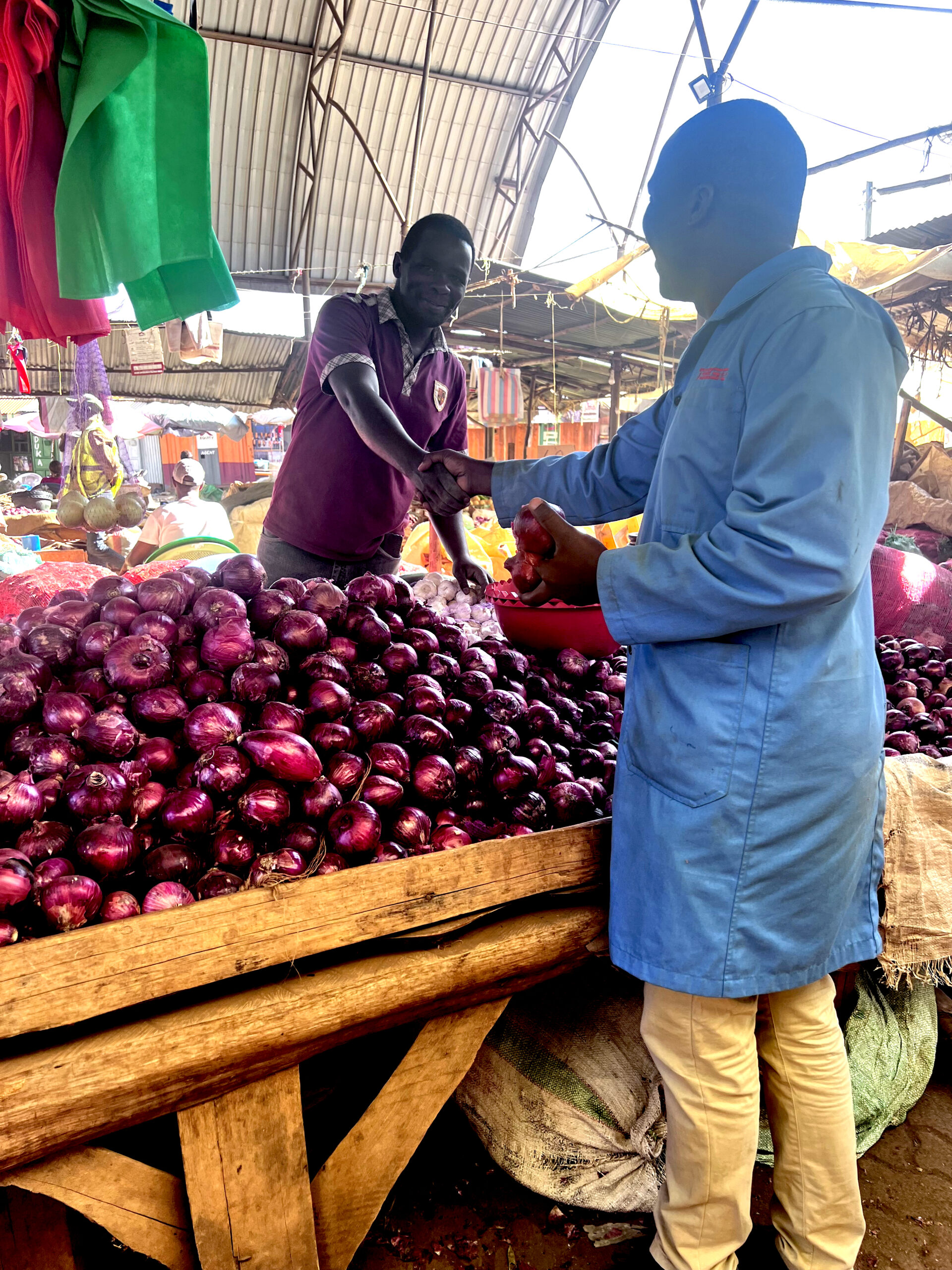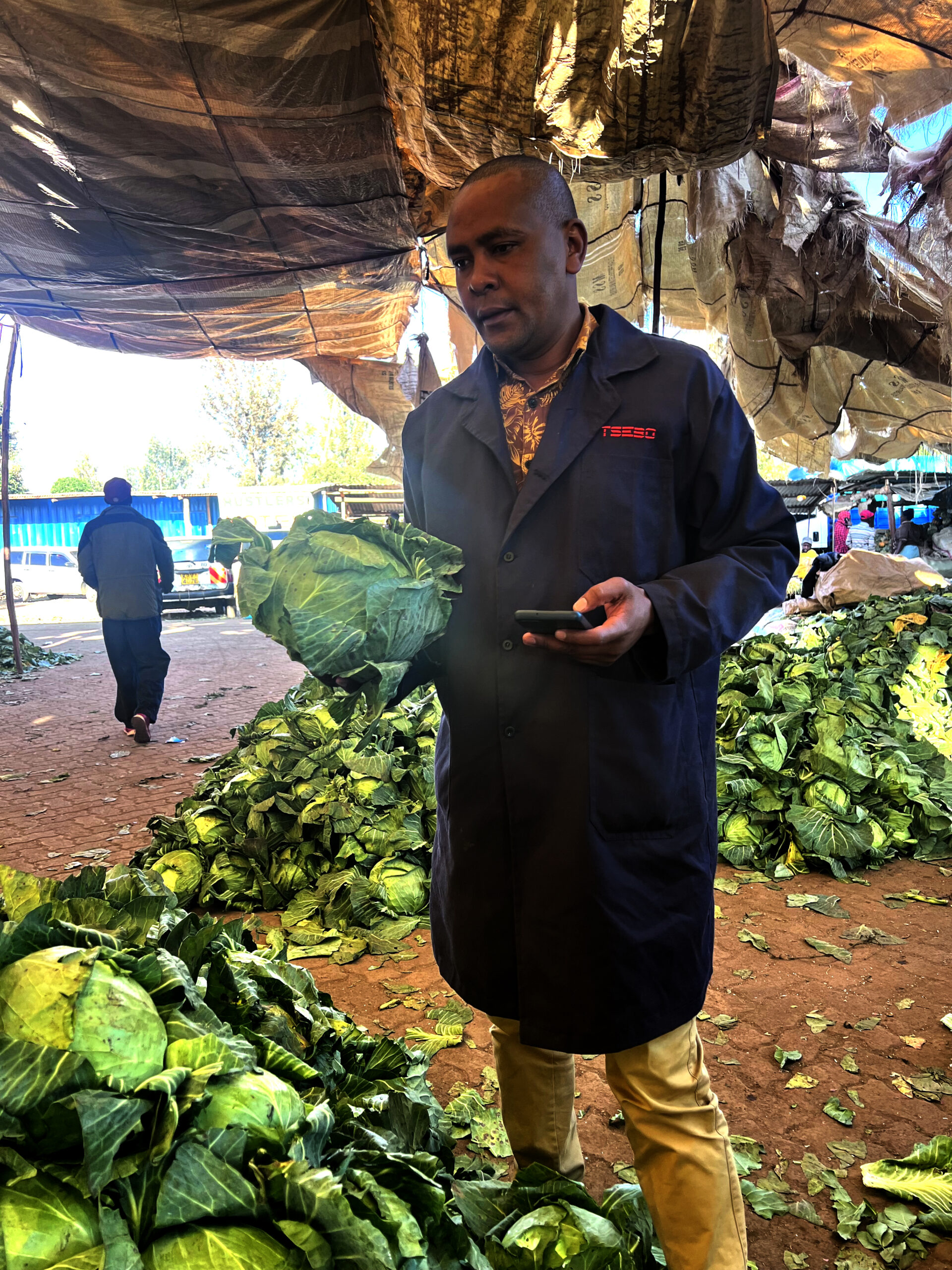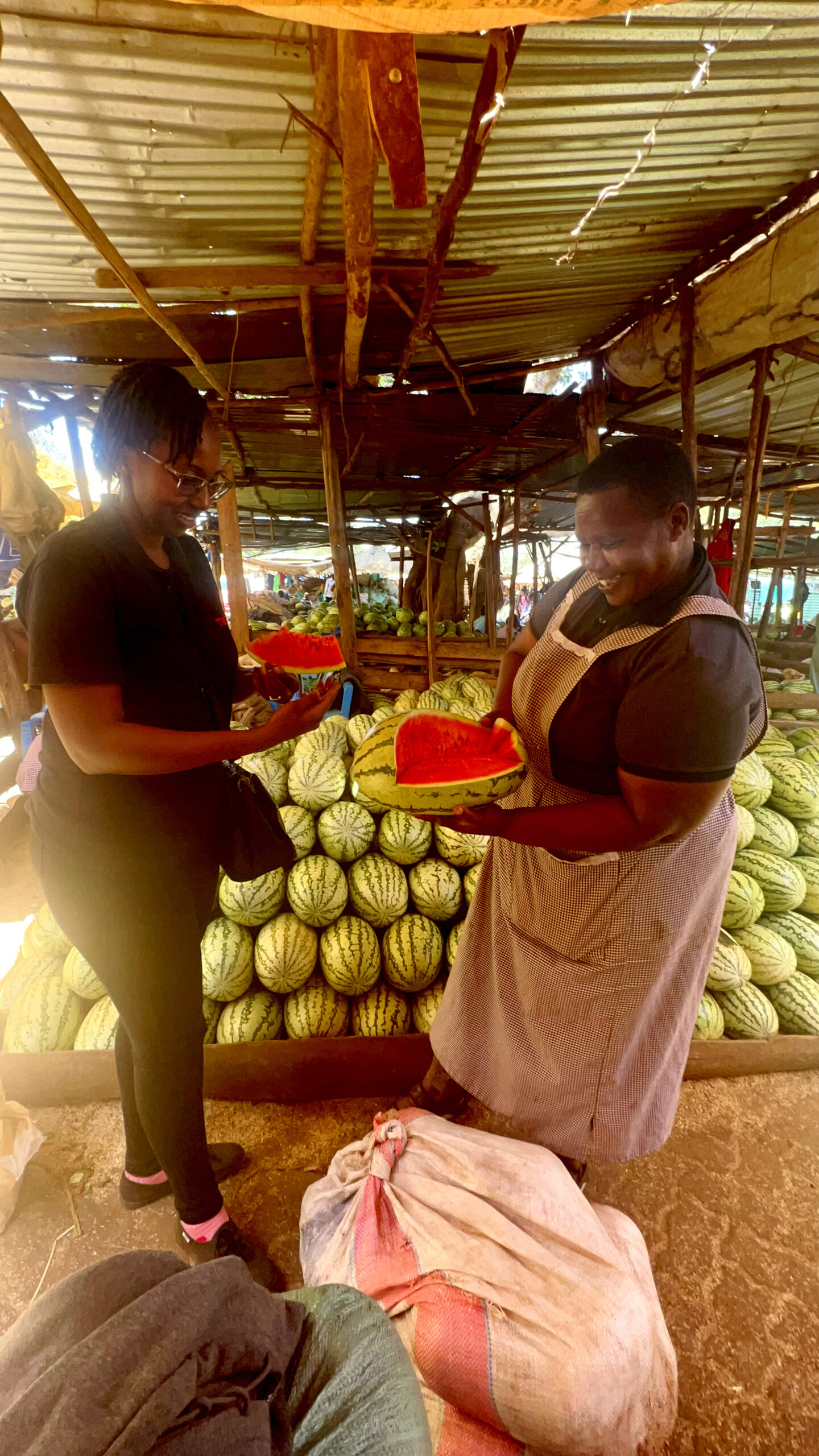As part of the Tsebo Solutions Group, Tsebo Kenya shares its parent organisation’s environmentally responsible ethos and commitment to managing its environmental footprint by employing water and energy saving and cutting down on waste and emissions across all of its operations.
Food production represents one of the world’s most environmentally damaging industries, considering the waste that goes into growing, packaging and transporting food. Tsebo Kenya embarked on a farm-to-fork initiative to source locally and now ensures optimally fresh produce while substantially lowering its carbon footprint.
The challenge
As with other countries in the world, Kenya has been experiencing rampant food inflation, making it increasingly challenging to retain the level of quality and cost-effective pricing for which Tsebo is known. At the same time, Tsebo Kenya’s chefs expressed a need to update their menus with fresh, seasonal fruit and vegetables. However, they found that their legacy wholesale suppliers were inconsistent in their provision in terms of quality and timing.
The solution
In line with Tsebo Solutions Group’s renewed sustainability drive, Tsebo Kenya realised that by circumventing the middle man and going directly to the source, they could ensure the provision of the best quality products at the most reasonable prices. By initiating a farm-to-fork programme, they would not only provide cost-saving and reliable provision for Tsebo Kenya’s catering solutions, but it would also have direct benefits for the local farming communities in which they operate.
What is farm-to-fork?
The farm-to-fork (also known as farm-to-table) movement encourages the use of natural, locally produced foods over imported or processed alternatives. It supports community-based food systems by buying directly from growers to support local economies and farming communities that observe sustainable farming practices.
This helps to decrease the physical distance produce needs to travel, thereby reducing the environmental impact of transportation. It also helps to create sustainable food systems that support ethical labour practices, community upliftment, and environmental conservation. For a commercial caterer like Tsebo Kenya, farm-to-fork allows auditable traceability for produce as it moves through the food supply chain.
Tsebo Kenya initiated relationships with dependable local suppliers, markets and farms. All fruit and vegetables (ranging from potatoes, carrots, and spinach to lychees, apples and tomatoes) are sourced from suppliers at the local markets or, for bulk quantities, directly from local farms for distribution by Tsebo to its client sites.
All suppliers are thoroughly vetted to ensure the quality and freshness of their organic produce. Tsebo Kenya’s Health and Safety Manager and procurement teams work closely with the relevant chefs to ensure that an auditing process is followed, particularly when it comes to bulk suppliers who need to provide consistent quantities and quality.

Local farmers are given guidelines to help them consistently meet Tsebo’s high expectations for freshness, quality and quantity in terms of ripeness levels, size of produce, and packaging, among other stipulations.
Chefs inspect the local markets and identify suppliers that produce fresh, seasonal fruit and vegetables that will revitalise their dishes and allow them to create inspiring seasonal menus.
Supplier testimonial
“I met one of Tsebo’s sourcing people at the Kagio market. They bought 100 kgs of spinach and 80 kgs of kale from me. This was 80% of my stock, and I was overjoyed. The quantities they have been sourcing from my farm have increased threefold as they now buy 500 kgs of spinach and 350 kgs of kale weekly. I am unable to meet their demand and now buy from neighbouring farms, thus empowering more mothers like me. This has allowed me to contribute to the household’s financial needs and reduced my husband’s financial strain.
I am proud to be associated with Tsebo and hope for them to grow the business more and to empower more mothers like me.” – Rose Mburu, Kirinyaga County, Kenya.
Benefits and results
The relationship between Tsebo Kenya and local farmers has yielded symbiotic benefits for both Tsebo, its communities, and its clients, as well as a reduced environmental impact.
The four main items currently being sourced in metric tones per week are:
- Potatoes: 5 ton
- Watermelons: 5 ton
- Pineapples: 5 ton
- Spinach: 5 ton
For Tsebo, the benefits of being able to procure fresh, higher-quality fruit and vegetables were immediately obvious to clients through inspired, frequently updated menus using seasonal ingredients.
Other benefits include:
- Faster supply and on-demand procurement of produce
- Strong and sustainable relationships with local communities
- A competitive edge in the market – procuring the best quality products at a fair price
- A 7% reduction in procurement costs
- Environmental benefits and a lower carbon footprint
- Regular demand helps farmers prioritise which crops to focus on and reduces waste
- By prioritising small, organic farmers, mostly women-owned enterprises or cooperatives, small farmers can grow their businesses and receive fair prices for their produce
- Tsebo facilitates the development of farmers’ businesses by teaching them how to upscale, deliver on time and achieve compliance with health, safety and quality standards.
What’s next:
The next phase of the farm-to-fork initiative is to provide additional training for the suppliers at a grassroots level. Tsebo aims to partner with small-scale farmers to help them grow their businesses in a financially sound and sustainable way. The aim now is also to source animal protein from local suppliers, which will necessitate additional training to meet strict health and safety protocols.
By developing a local food supply chain, Tsebo Kenya has reduced its carbon footprint and improved the reliability and freshness of produce used in its kitchens while significantly and sustainably contributing to the livelihoods of small-scale farmers in the communities in which it operates.










